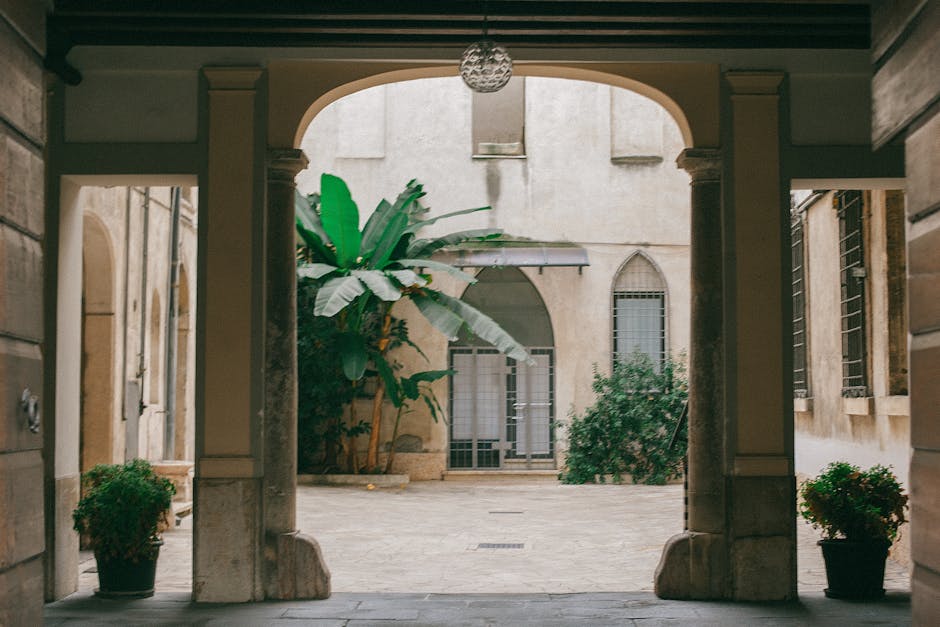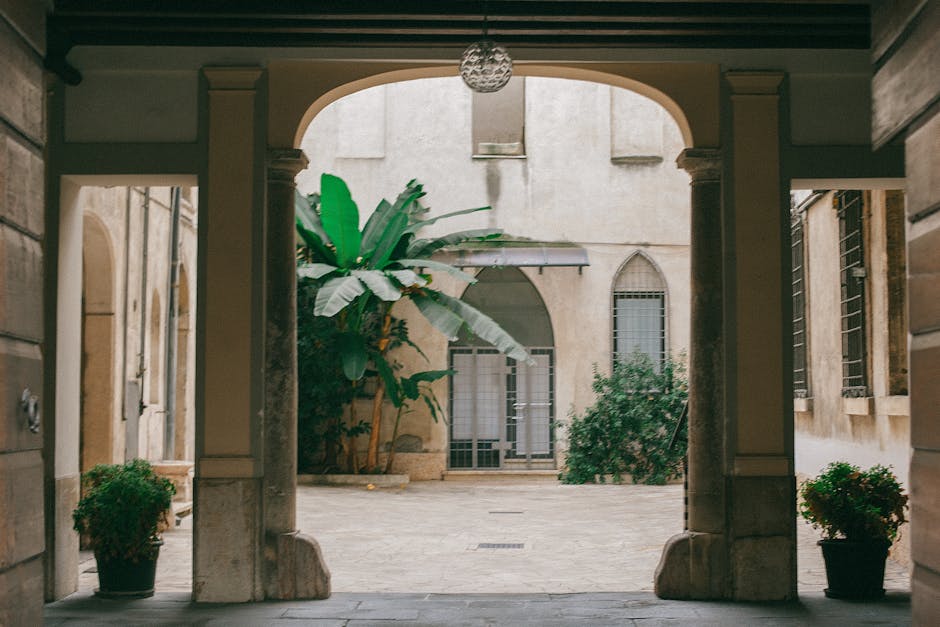Maximizing Space: A Guide to Simple Patio Design with Potted Plants

Outdoor minimalism is a trend that has been gaining popularity in recent years, and it’s easy to see why. With the hustle and bustle of modern life, many of us are seeking ways to simplify and declutter, not just our indoor spaces, but our outdoor ones as well. One of the most effective ways to achieve this is through a simple patio design with potted plants. This approach not only maximizes space but also creates a serene and inviting outdoor environment.
The beauty of using potted plants in your patio design is the flexibility they offer. Unlike traditional garden beds, potted plants can be easily moved around, allowing you to change the look and feel of your patio as often as you like. This is particularly useful for those with smaller patios, as it allows you to make the most of your available space.
When it comes to choosing plants for your patio, consider opting for a mix of different sizes and types. Larger plants can be used to create a focal point or to provide privacy, while smaller plants can add color and texture. Don’t be afraid to experiment with different combinations until you find what works best for your space and personal style.
In addition to choosing the right plants, the pots you choose can also have a big impact on the overall look of your patio. For a minimalist look, consider choosing pots in neutral colors and simple designs. Alternatively, for a more eclectic feel, you could opt for pots in a variety of colors and patterns. Remember, the goal is to create a space that feels calm and uncluttered, so try to avoid going overboard with too many different styles.
One of the key principles of outdoor minimalism is the idea of ‘less is more’. This doesn’t mean you have to limit yourself to a handful of plants, but rather that you should be mindful of not overcrowding your space. Try to leave enough room between your pots to allow for easy movement and to give your plants the space they need to grow and thrive.
Another great thing about using potted plants in your patio design is that they require less maintenance than traditional gardens. Most potted plants only need to be watered once or twice a week, and many are quite hardy and can withstand a range of weather conditions. This makes them a great option for those who want to enjoy a beautiful outdoor space without having to spend hours each week on garden maintenance.
In conclusion, a simple patio design with potted plants is a fantastic way to embrace outdoor minimalism and make the most of your outdoor space. Whether you have a large patio or a small balcony, this approach can help you create a serene and inviting outdoor environment that you’ll love spending time in. So why not give it a try? You might just find that less really is more when it comes to patio design.
Embracing Outdoor Minimalism: Transforming Your Patio with Potted Plants
Outdoor minimalism is a design trend that has been gaining popularity in recent years. It’s all about simplicity, functionality, and the beauty of nature. This trend is not just about decluttering your space, but also about creating a serene and peaceful environment that allows you to relax and unwind. One of the best ways to embrace outdoor minimalism is by transforming your patio with potted plants.
Potted plants are a versatile and cost-effective way to add life and color to your patio. They are easy to maintain and can be moved around to create different looks. Plus, they are a great way to bring nature closer to your living space.
Start by choosing a variety of plants that suit your taste and the climate of your area. You can opt for a mix of flowering plants for a pop of color, succulents for a touch of modernity, or herbs for a practical and aromatic addition. Remember, the key to minimalism is to keep it simple. So, avoid overcrowding your patio with too many plants. Instead, choose a few key pieces that will serve as the focal points of your space.
Next, consider the pots. They are not just containers for your plants, but also an integral part of your patio’s overall design. Opt for pots in neutral colors like white, black, or terracotta to maintain a minimalist aesthetic. You can also play with different sizes and shapes to add interest and depth to your patio.
Placement is another crucial aspect of patio design. Arrange your potted plants in a way that allows for easy movement and doesn’t obstruct the view. You can group them together for a lush, garden-like feel, or space them out for a more sparse and open look.
Don’t forget about the practical aspects of maintaining your potted plants. Make sure they get enough sunlight and water, and don’t hesitate to prune them if they start to look overgrown.
In addition to potted plants, you can also incorporate other minimalist elements into your patio design. For instance, a simple outdoor rug can define your seating area, while a few well-chosen pieces of furniture can provide comfort without cluttering the space.
Lighting is another important aspect to consider. A string of fairy lights or a few solar-powered lanterns can create a warm and inviting atmosphere after sunset.
Lastly, remember that outdoor minimalism is all about creating a space that reflects your personal style and needs. So, feel free to experiment and tweak the design until you find what works best for you.
In conclusion, embracing outdoor minimalism doesn’t mean you have to sacrifice style or comfort. With a bit of creativity and planning, you can transform your patio into a beautiful and relaxing oasis with potted plants. So, why not give it a try? You might be surprised at how much you enjoy the simplicity and tranquility of your new minimalist patio.

